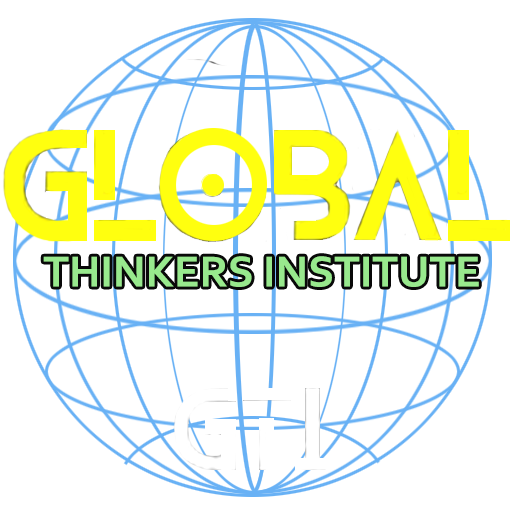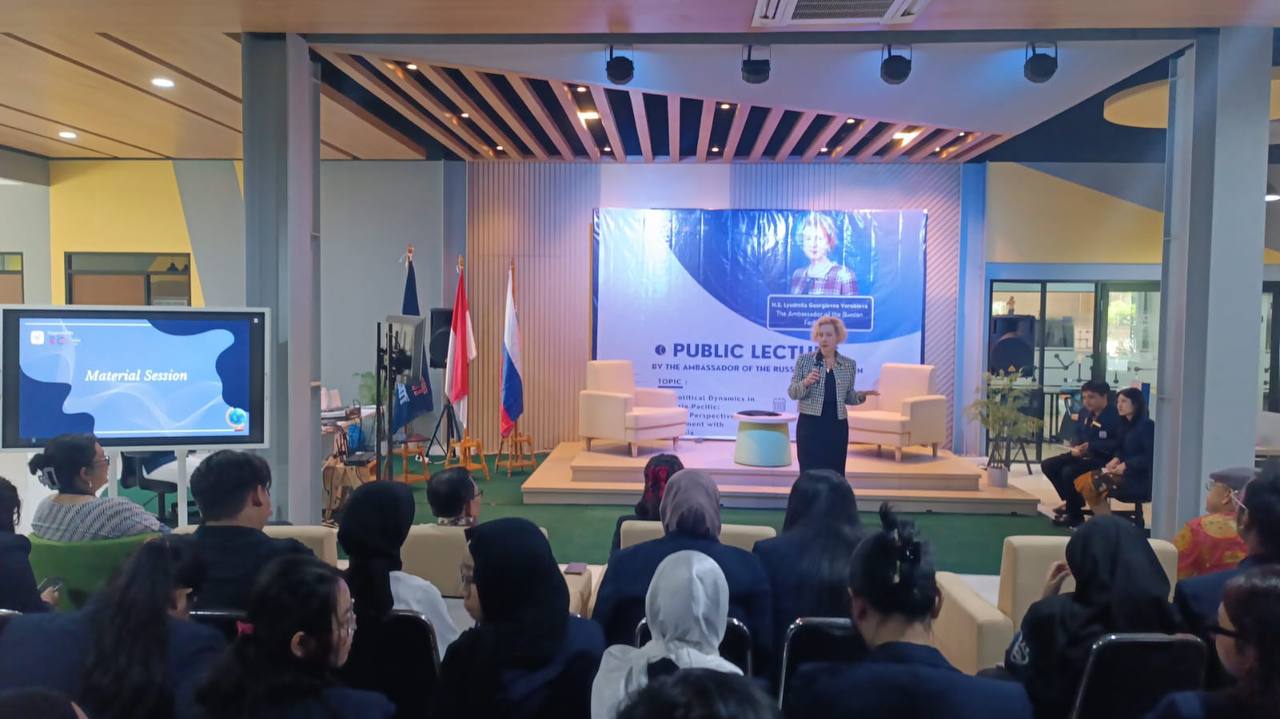GTI-Russian-Indonesian Embassy, Global Thinkers Institute (GTI), and the Association for International Relations Sciences-Indonesia (AIHII), collaborated on Road Show; The Ambassador of the Russian Federation to the Republic of Indonesia with Madame Lyudmila Georgievna Vorobieva to various campuses in Indonesia.
The aim of this program is to strengthen relations between Russia and Indonesia, mutual understanding of global geopolitical developments which influence the depth of relations between the two countries. The big theme of this program is to promote big ideas at the macro-micro level regarding paradigmatic changes in the transition from a unipolar world to a multipolar world.
The first road show was held at President University, January, 25, 2024. With the theme "Geopolitical Dynamics in the Asia Pacific: Russia's Perspective and Engagement with Indonesia". Starting with remarks from Drs. Muhammad AS. Hikam, MA, Ph.D. (Head of International Relations Study Program at President University), former Indonesian Minister of State for Research and Technology (1999–2001).
Greetings from Dr. Drs. Evi Sopandi, M.P.d, Head of Programs and Cooperation, Global Thinkers Institute (GTI), representing the Director of the Global Thinkers Institute (GTI), Muhammad Ma'ruf, Ph.D, who was unable to attend. Speech from Laila Indiryanti Fitria, M.Si representing AIIHII.
Next, Madame Lyudmila gave a lecture for almost 2 hours. Starting from the history of Russia-Indonesia cooperation in various fields; culture, education, economy, and outlining the latest geopolitical developments. According to Lyudmila, modern Russia has big challenges in facing the transition from unipolar to multipolar power. US-NATO and western proxies continue to maintain their hegemony by using double standard politics and creating wars in all parts of the world.
The cases of Crimea, Ukraine, Yugoslavia, Donetsk and Luhansk conflicts are part of the US-Nato expansion to weaken Russia. Ukraine is being used as a tool by the West to cut gas exports to Europe. However, even though thousands of Russians have been sanctioned by Nato-Western powers, Russia's economic market, which previously went to Europe, has gained a new larger market in the global south. China and India are Russia's two largest gas importing countries. Western European countries that have imposed various sanctions on Russia are actually experiencing a downward and very painful economic trend, such as in Germany. In the case of the Israeli genocide in Gaza, the Russian government hopes that the war will end and the establishment of a fully independent Palestinian state soon became a reality.
In the future, Madame Lyudmila hopes that there will be a significant improvement in relations between Russia and Indonesia at all levels. Indonesia hopefully becomes part of the agents of change in a multipolar world based on equality and respect. Followed by a question and answer session. The discussion atmosphere was quite warm, President University students enthusiastically asked various questions.
The history of Russia-Indonesia relations has been around for quite a long time. The Russian Empire began visiting the archipelago in the 19th century. In 1806, two sailing ships, Nadezhda and Neva, under the leadership of Ivan Krusenshtern and Yuri Lisyansky, made the first circumnavigation of the earth by Russia, and approached the coast of the nusantara (pre-independence Indonesia 1945.
In 1890, Crown Prince Nicholas, the future Emperor Nicholas II of Russia, sailed to the nusantara on the ships Pamyat Azova and Vladimir Monomakh.
Russia had made contact with the people of the archipelago, as evidenced by the establishment of the first full-time Russian consulate in Batavia, the capital of the Dutch East Indies, in 1894.
After World War Two, in 1950, the USSR (Union of Soviet Socialist Republics) established diplomatic relations with Indonesia. USSR, together with Egypt and several Arab countries have recognized Indonesia's independence.

